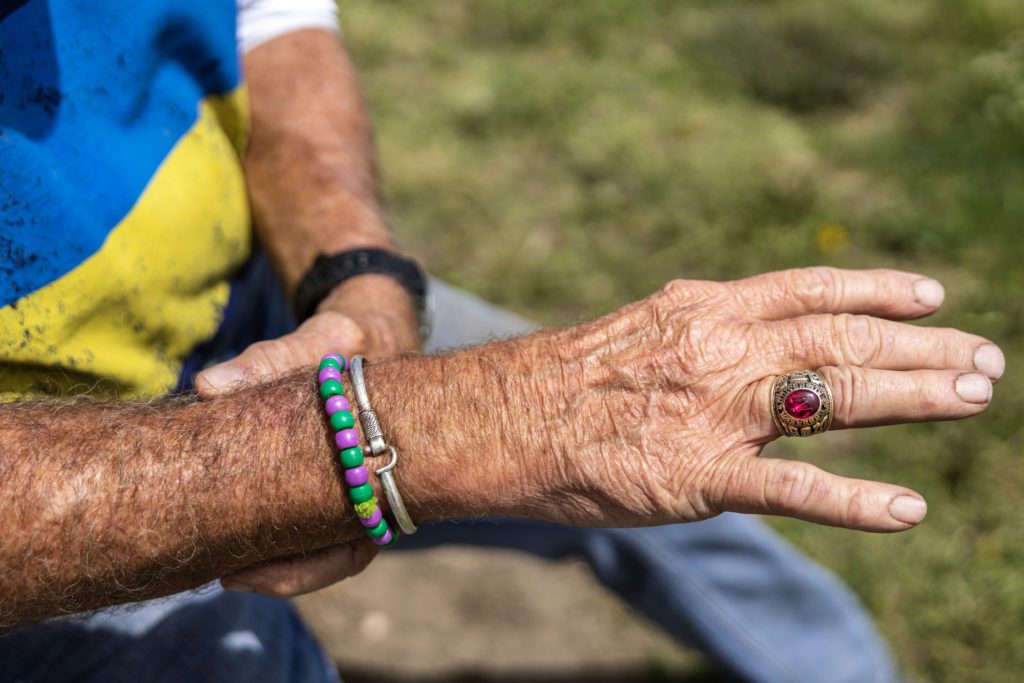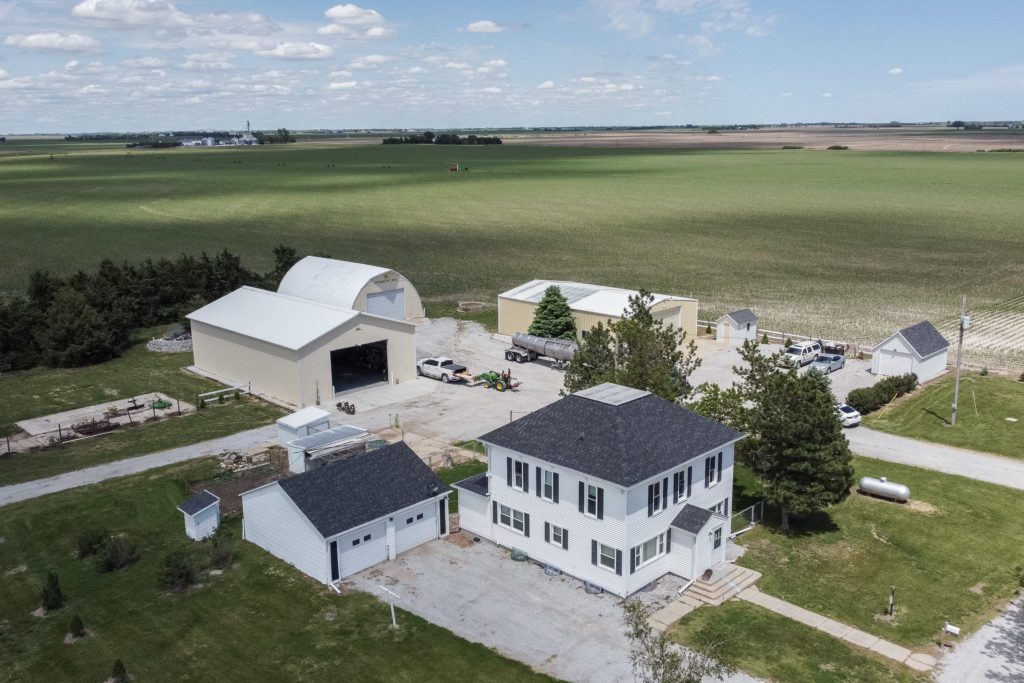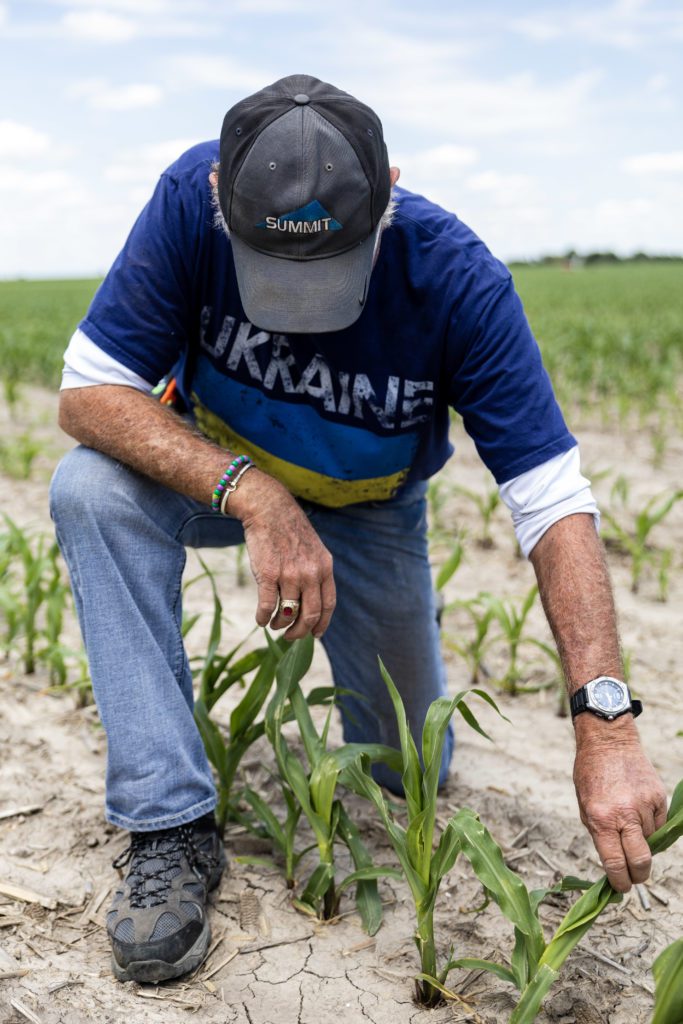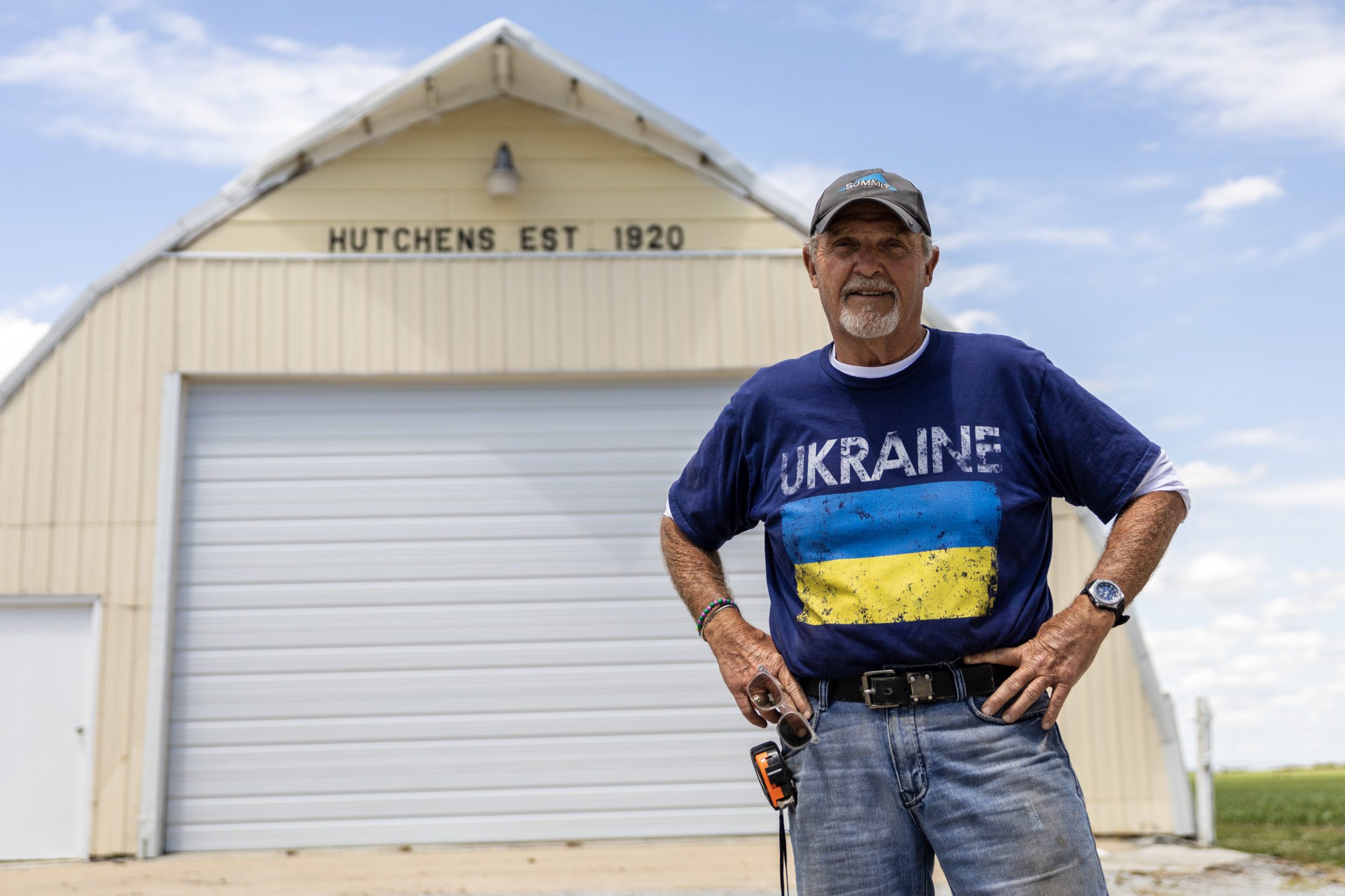Don Hutchens is a farmer, just like his father and his father’s father. He wears an “I stand with Ukraine” button on his chest and a red University of Nebraska ring on his finger. Twenty-eight years as executive director of the Nebraska Corn Board sent him around the world representing his state’s farmers and agricultural interests.
And for two weeks, he was one of many Lincoln volunteers who spent time in a hotel in Warsaw with Operation Safe Harbor Ukraine – a Nebraska-led effort to help feed, clothe and shelter Ukrainian families fleeing the ongoing war at home.
Now, he’s back home in Lincoln, hoping to spread his message to farmers in the United States:
“We have a moral and humanitarian responsibility to support the refugees and Ukraine,” Hutchens said. “We’re not being bombed. We’re not having our fields decimated by tanks. We’re not having to get off our equipment to go fight a war.”
With dark, fertile soil, Ukraine is one of the world’s top exporters of sunflower oil, corn and wheat. The breadbasket of Europe, the country produces one tenth of the world’s wheat.
Russia’s invasion interrupted, and maybe catastrophically disrupted, Ukrainian farmers’ harvest and planting. Blocked ports and destroyed railways cut off typical export routes, trapping crops in a country that normally exported up to 6.6 million tons of grain and oilseed each month before the war.
The month after Russia attacked, that dropped to 330,000 tons, Ukrainian farming officials said.
The result could mean a “hurricane of hunger” for the European, Asian and African countries that rely on Ukrainian wheat, United Nations officials have said.

Countries like Egypt, Lebanon and Pakistan get most of their wheat from Ukraine. The country’s harvest ships to the Middle East to be turned into bread, and Chinese farms to be fed to livestock.
Now, that supply of grain is trapped in the country – the ports and railways are blocked. Early on in the war, Ukraine placed restrictions on agricultural exports to avoid a hunger crisis in the country.
The squeeze on food supplies and soaring prices are making an already existing global hunger crisis even worse, according to the United Nations.
Because of the sudden absence of Ukrainian grain on the world market, prices on crops like corn, wheat and soybeans have skyrocketed in a way Hutchens has rarely seen in his decades of farming.
“Ukraine’s loss has been some of our gain in agriculture,” he said. “In agriculture, you don’t set the price of what you sell. You take what the market dictates.”
The numbers get texted to Hutchens’ phone daily – wheat prices at times doubling what they were since the days before the war began. Corn prices have risen about 15% over that time, he said.
For Nebraska farmers, this year has brought weather challenges and higher prices on expenses like fertilizer and fuel. But overall, farmers have been able to take advantage of the significant price increases on crops, he said.
“I’m feeling guilty about the profit farmers are making,” Hutchens said. “I really believe agriculture and all of us need to share in donations.”

Growing up on the family farm outside Geneva, Hutchens watched farmers help their neighbors, regardless of wealth or size. If there’s ever a tornado or snow storm, his fellow Nebraska farmers are quick to head to the neighboring county to help, even if it goes against the competitive nature of business.
“In agriculture, you’re competing with your neighbor for the same marketplace…for a piece of ground that might come up for sale,” Hutchens said. “But at the same time, we’re always supportive of each other.”
His hope is that Nebraska farmers will see their Ukrainian counterparts as neighbors, even though they’re halfway across the world. Even though, in normal years, they are competitors.
To friends who ask, he suggests donating through their church, or other refugee aid organizations like Operation Safe Harbor. Or he suggests donating their time, like he did in Warsaw.
Hutchens isn’t the only one working on getting aid to Ukrainian farmers and their families. Ukrainian native Roman Grynyshyn started the project World to Rebuild Rural Ukraine to raise money to help small farmers replace what they’ve lost.
For the past month, Grynyshyn and his family have traveled the United States – including Nebraska – spreading their message to help Ukrainian farmers.
Before the war, Grynyshyn led agricultural tours where Ukrainian farmers would travel to the United States to learn from American farmers. When the war broke out, those trips halted.
His farming contacts throughout Ukraine passed along stories from the countryside: Russian soldiers are setting fire to warehouses full of seeds and fertilizer, they said. They’re stealing tools and live farm animals. Fields are dotted with mines. The burned-out hulls of tractors and mangled equipment line roadsides.
“They are targeting agriculture as well as the military,” Grynyshyn said during a May presentation at the University of Nebraska-Lincoln. “This is the second battlefield.”
Using donations, Grynyshyn’s organization is buying replacement supplies, equipment and even animals for small Ukrainian farmers. Despite the ongoing war, Ukrainian farmers are continuing to farm any way they can, with an emphasis on feeding the families and soldiers who have remained in the country.
“It’s not a gift, it’s just a helping hand,” Grynyshyn said. It’s also “a project that will unfortunately last years beyond the war’s end.”

Hutchens expected some pushback from his fellow farmers – while crop prices went up, so did expenses.
One asked him: Would Ukrainian farmers help us in a drought?
“Probably not, but this isn’t a drought. This is a war. This is a genocide,” Hutchens said. “Wouldn’t you want somebody to help your wife, your daughter, your grandchildren if they had to flee and find shelter and food?”
He has mostly heard from people asking how they can help.
Before boarding his flight in Warsaw, Hutchens snapped a selfie with a newfound friend.
The pair were brought together after recognizing their matching Ukraine T-shirts across the Chicago O’Hare airport terminal – the blue and yellow flag representing the wide blue sky over the fields of wheat that cover the country.
Both were headed on the long international flight to Poland – the man, to transport armored chest plates into his homeland, Hutchens to start his two weeks helping Ukrainian families in the hotel.
Ten hours later at the Warsaw baggage claim carousel, the pair once again crossed paths. Hutchens helped the Ukrainian native unload 100 20-pound armored chest plates that came down the conveyor belt.
He helped, because that’s what farmers do.



